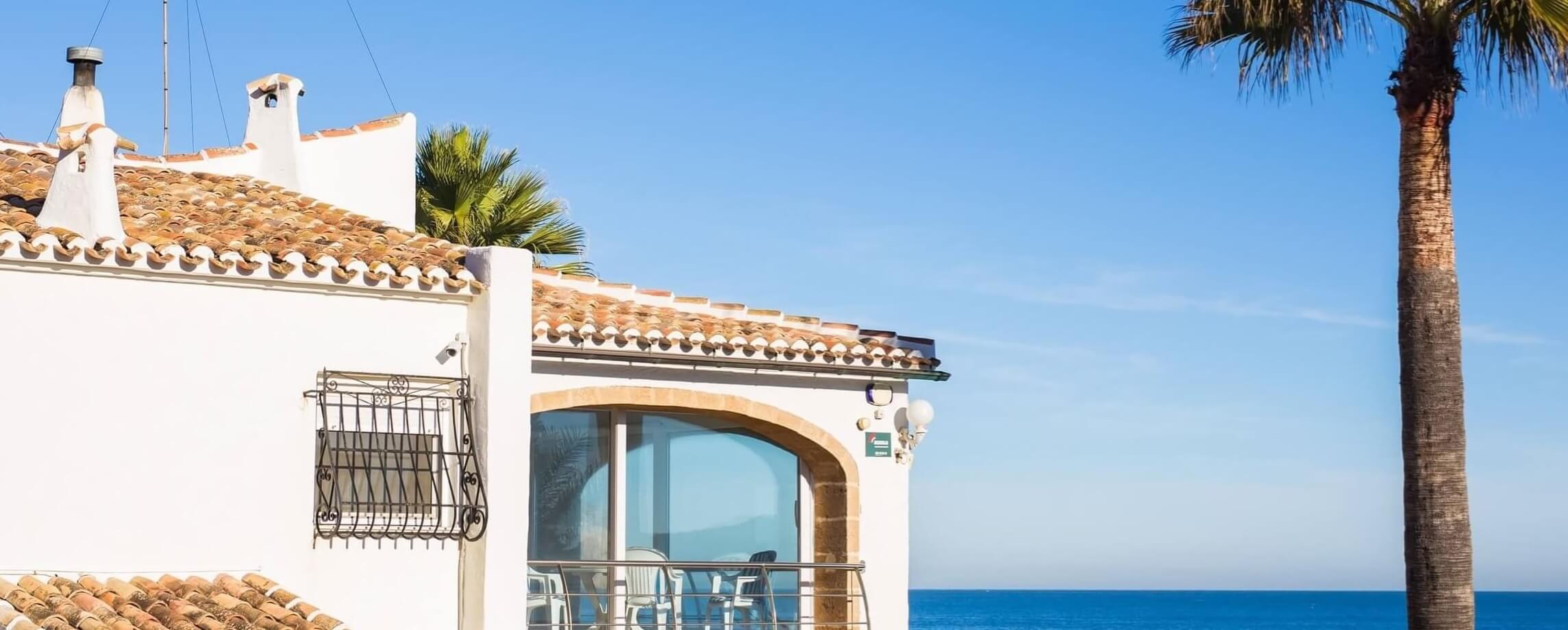Retiring to Spain is among the most popular choices as a destination for UK residents thinking about moving to another country in their twilight years. It competes with France for the most popular spot, beating Germany, Italy, Greece, and other European countries.
The fabulous climate, a laid-back lifestyle, world-class cuisine, and a warm welcome are just a few of the benefits that Spain offers retirees. Around six million foreigners have made Spain their home, which equals approximately one in 8.1 of the 49 million population. Spain offers a high standard of living, with exceptional healthcare, unrivalled transport connections, and a relatively low cost of living.
There’s also the lure of a competitive education system, the possibility of an active, diverse social life, and the seventh-highest life expectancy in the world (the UK comes in at number 29) to sweeten the pot.
Retirement in Spain is accessible to many as it is reasonably low cost. The average monthly wage in most parts of Spain is around 1,300€, and many manage on less than this amount. Naturally, if you choose to live in the centre of Madrid or Barcelona, you will need more. This is due to higher rents, entertainment and grocery costs.
Furthermore, buying a property – rather than the semi-permanence and possible uncertainty when renting, is a sound investment in today’s real estate market. Buying your own place also gives you an instant accommodation solution if family visits. Owning will additionally lower your monthly living costs, as you do not have to factor in rent.
As when making any significant life change, before retiring to Spain, there are details you need to consider. Here we list some humourous, some not so humourous “Do’s and Don’ts” relating to common issues confronting new retirees when they make this life-transforming move.
Do’s When Retiring to Spain
- Do attempt to learn the language as soon as you decide to retire to Spain. Speaking some Spanish will help you integrate into your new community more fully.
- Do find someone who can help you when you need fluent Spanish while you are learning. This does not have to be an expensive professional translator. In many cases, you will find bi-lingual teens who have expat parents who are more than capable of translating for you in non-legal situations.
- Do be prepared to pay for professional legal help. The Spanish are well known for their love of complex paperwork and bureaucracy, and no matter how well you speak Spanish, sometimes it is worth paying an expert to avoid problems down the line.
- Do take out relevant insurance. While some insurances are obligatory such as vehicle insurance, others, including life, funeral, and home insurance, are not mandatory. However, you will probably find the relatively low cost of such insurances is worth the peace of mind they afford.
- Do make sure you have medical insurance in place or are covered by the Spanish social security system. No matter how healthy you are when retiring to Spain, life has a curious way of throwing curveballs, and you must have everything in place before you become ill or suffer an accident.
- Do your research before deciding on a town. Towns within just a few miles of each other can vary considerably regarding entertainment, public transport, and amenities.
- Do your research before choosing which part of the town you will move to. Depending on what is important to you, you will need to decide if you want to be near the beach, in a more peaceful area, or within walking distance of supermarkets, pharmacies, restaurants, etc.
- Do research how your chosen town may change depending on the season. If you like a lively lifestyle, you could be disappointed to move to a vibrant resort, only to find 70% of all local businesses close for at least four months out of every year.
- Do consider the weather in your desired area. If you visit in June and the weather is a balmy 24 degrees, you need to realise in July and August, temperatures may remain well above 30 degrees for the best part of 6 weeks. Such high temperatures can be very uncomfortable and too hot for some.
- Do ask your estate agent for advice if you think your budget won’t stretch to buying a property in your desired town. In many areas, if you are prepared to go just a few miles inland, you’ll find property prices fall significantly.
- Do be aware that if you spend more than 183 days a year in Spain, you will pay tax on your worldwide income.
- Do consider the drive to the nearest hospital. Hospital distance may not seem relevant if retiring to Spain early in your 50s, but as the years pass and illness becomes more likely, such matters gain importance.
- Do expect to miss your family and friends. Even if one of the reasons you chose to move was to see less of them, it is perfectly natural that you will miss people and places from your home country. Homesickness will pass as you begin to make new friends, and you develop a routine to stay in touch with and meet up with your family.
- Do ask for recommendations. It always takes a while to find the best places and services whenever you make a new move. More experienced expats are usually more than willing to share their knowledge of local amenities to help newcomers find their way around.
- Do be prepared to try new activities. If you have lived in a rainy UK city for the last 50 years, hiking up a hill might seem like something only an alien would want to do. However, just about every person we have talked with who moved from the UK to Spain talks of increasing their outdoor activities considerably due to the excellent weather. They are typically amazed to find out how much they enjoy their new active, healthy lifestyle.
- Do accept that service isn’t as likely to be as good as you were used to in the UK. Expect to wait in lines and wait for the customer in front of you to hold up the queue because she is chatting to the cashier. It’s part of the Spanish way of life.
- Do have a plan in place in the event you or your partner need long-term medical care. While the public health care system in Spain is excellent, there is a lack of a support structure for the elderly. There are few residential care homes, and it is generally assumed that relatives will look after older family members.
- Do watch your belongings if you move to or visit a large city. While the crime rate in Spain is low compared to many other countries, it has increased in recent years. The unemployment rate in Spain is high, and jobs for many are hard to come by. Pickpocketers like to hang around the metro, nightclubs, bus stations, or anywhere else that is crowded and confusing. Like in many large cities, pickpockets in Madrid and Barcelona target foreigners as they expect them to be less aware and carry extra cash.
- Do pay any traffic fines promptly. In many towns, you will pay only 50% of the fine if you pay within a specified time frame. This may only be a matter of days, so read the small print!
- Do remember smaller businesses typically close for at least a couple of hours between 1 pm and 5 pm, and town hall services are usually only open until 2 pm.
- Do limit your water usage. Lack of water is becoming an increasingly serious problem in many parts of the world. This includes Spain; many regions suffer from critically low water levels. This shortage is more intense in dry parts of the south, but the entire country can feel the effects as authorities must distribute water from one region to another. So it is essential to do your bit by making sure leaking taps are fixed and only using what you need.
Dont’s When Retiring to Spain
- Don’t have unrealistic expectations. Like everywhere else on the planet, Spain does have negative points! There will be rainy days when the sun doesnt shine, and it isn’t easy to park in many places during the high season, and the paperwork can be horrendous! Make sure your expectations are realistic, and you will be fine.
- Don’t rush into any part of the move. Take time to research regions, towns, and properties. Many people decide to rent in their desired area for at least six months before buying to make sure it is the right location for their requirements.
- Don’t think you will immediately immerse yourself in Spanish culture when you arrive in Spain, unless you move to an area without expats. With so many foreigners around, it is only natural you will find yourself mainly mixing with them on arrival. If meeting locals is important to you, talk Spanish as frequently as possible and find out about local volunteer organisations, as this is a good way to meet Spanish people.
- Don’t be too keen to isolate yourself from other expats. If times get tough or you face a health problem or experience another challenge, expats can be your most reliable source of support.
- Don’t drive in Spain shirtless, barefoot, or wearing flip-flops. If stopped, you’ll be liable for a fine of €200.
- Don’t drive with your hand or arm outside of the vehicle’s window. Doing so can result in a fine of €100.
- Don’t fill your car with the radio on at a petrol station. You could be fined up to €91.
- Don’t make the most of waiting at a red light by putting on makeup or eating. It could cost you two points and €200.
- Don’t make the mistake of thinking an empty stretch of sand by a deserted beach would be a good place to pull over in your car. If the area is in an environmental protection zone, you could receive a fine of up to €6,000.
- Don’t panic if you lose your Internet connection or indeed are left without electricity entirely during a storm. Electrical failures are common in Spain during bad weather, but you will usually find you are reconnected within an hour or two.
- Don’t cheer for the Barcelona football team when you are in a bar in Madrid, or vice versa.
- Don’t politely wait until everyone else has finished talking if communicating with a group of Spaniards in a bar. Anyone who has ever been in a Spanish bodega knows waiting for the current speaker to finish before weighing in does not exist. If there are six Spaniards at the bar, at least four people are talking. As a result, the volume increases exponentially as they try to make themselves heard. It doesn’t mean they are arguing, although it certainly appears that way to the uninitiated.
- Don’t neglect to check Internet and mobile phone coverage in your chosen area if having a reliable connection is essential to you when retiring to Spain. Spanish mobile phone coverage varies significantly throughout the country. In the cities and well-populated coastal areas, coverage is excellent. But the coverage in more remote parts inland can be temperamental or even non-existent.
- Don’t stick to the tourist places when eating out, especially if you are on a limited monthly pension. Spanish lunch menus are cheap. Many cafes and restaurants serve a complete menu; starter, main dish, dessert, drink, bread, and coffee for around 10€ – 12€ in most towns.
- Don’t get into debates on regionalism. The Spanish are greatly sensitive to this matter and have a high sense of regional pride, particularly in Catalunya, Galicia, and the Basque Country.
- Don’t refer to a Catalan as Spanish. The Catalans are exceedingly proud of their culture, and many want independence from Spain. Even those who are against independence do not consider themselves Spanish.
- Do not walk around town wearing only your beachwear. It’s considered inappropriate and punishable with a fine of up to 300€ in some resorts.
- Don’t expect to stick to your traditional UK eating times. The Spanish do many things later than the British, including eating. If you eat out, lunch is usually served between 1 pm and 3.30 pm, and you’ll be hard pushed to find a restaurant serving dinner before 8 pm.
- Don’t be surprised if a stranger greets you. If you pass someone you don’t know in your building’s hallway or share a lift, they will most likely nod and say “Adios” as you cross paths.
- Don’t move back if someone offers you their cheek. It’s common practice in Spain to kiss someone on each cheek or touch cheeks and air kiss when greeting them.
- Don’t expect to kiss as a greeting in a business environment. In this context, a handshake is the customary greeting.
If you need advice or information on any aspect of retiring to Spain, please get in touch with us. We have worked in the Spanish property sector for almost three decades and help many retirees find their dream property and settle into their new adopted country successfully.
To contact us, fill out the contact form or email info@javea.properties, and we will get back to you as soon as possible.






